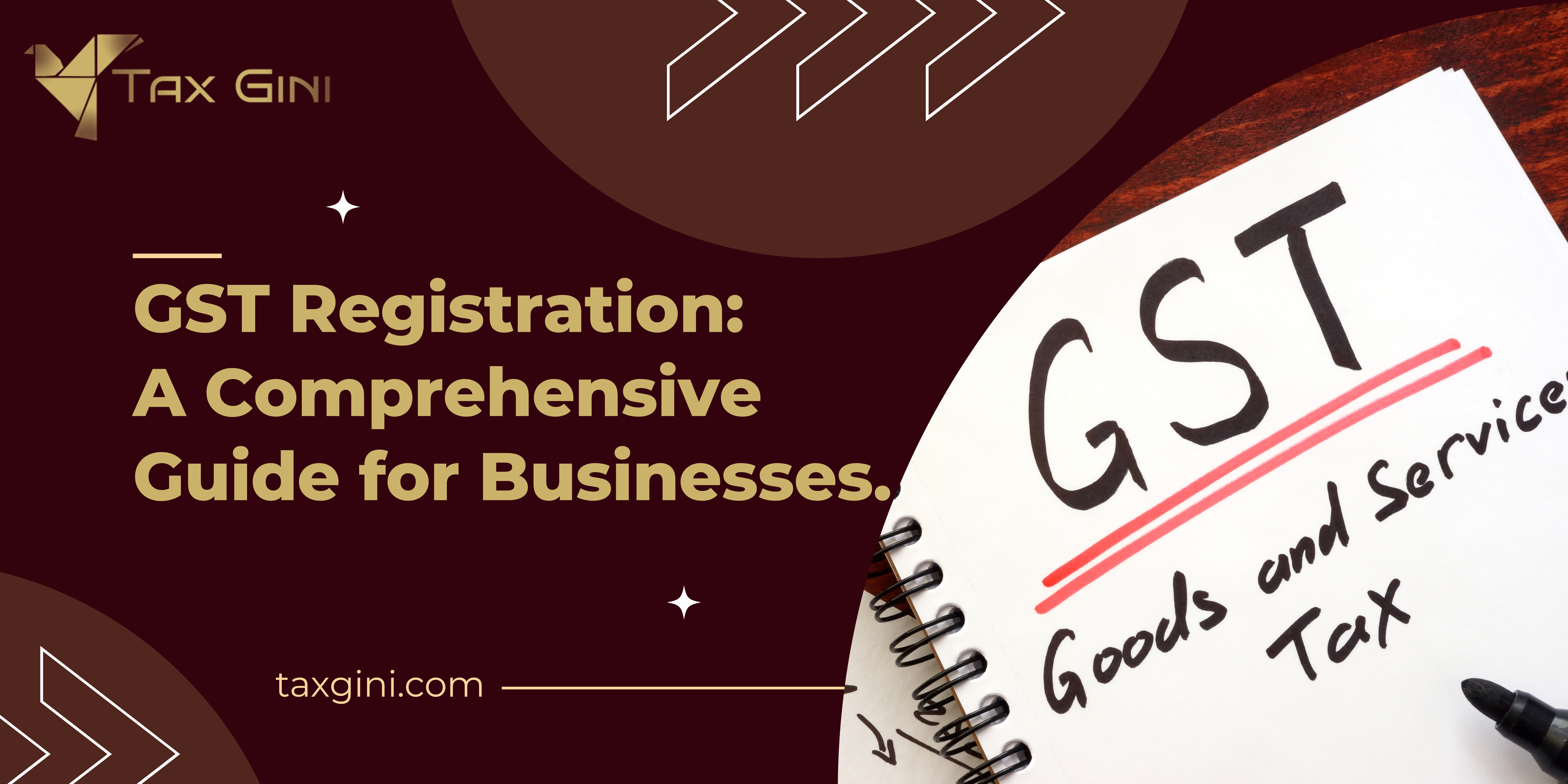What is GST Registration?
To register your firm for GST, you must first receive the Goods and Service Tax Identification Number (GSTIN), a 15-digit number issued by the tax authorities. This unique number serves as a personalised identifier for your business within the tax system and facilitates the systematic collection and organization of all your business operations and data.
Businesses are mandated to register for GST if their annual turnover exceeds the prescribed threshold limit. The threshold varies for the supply of goods and services. As of the last update in January 2022,
GST Registration threshold limit :
| States | Supply of Goods | Supply of Services |
| Mizoram, Manipur, Nagaland, and Tripura | 10 Lakh | 10 Lakh |
| Arunachal Pradesh, Meghalaya, Puducherry, Sikkim, Telangana, and Uttarakhand | 20 Lakh | 20 Lakh |
| All other states | 40 Lakh | 20 Lakh |
Benefits of voluntary Registration.
Even if a business’s turnover is below the mandatory threshold, it can opt to register for GST voluntarily. This can be advantageous for businesses seeking to claim an input tax credit (ITC), gain experience in the formal economy, and enhance their market presence.
The Goods and Services Tax (GST) is a transformative tax system that has simplified the complex Indian tax structure. It has reduced various taxes, fostered a unified market, and paved the way for smoother business operations.
List of Documents Required for GST Registration:
- PAN Card
- Aadhar card
- Photograph
- Address Proof of Office
- Rent agreement or registry copy
- latest electricity bill, house tax receipt, or telephone bill
- Index 2
- Bank details (cancelled cheque)
- No Objection Certificate (if premises are rented along with the owner’s PAN card)
- PTEC Certificate
- Gumasta
Here is a video to understand GST Registration–
FAQs on GST Registration:
Do I need to submit hard copies of any documents?
No, you do not have to submit hard copies, as the new registration is paperless.
Is there any verification while filing the new registration application?
Yes, the GST registration application undergoes verification, including document scrutiny, potential field visits, and communication for clarifications, ensuring accuracy and compliance before approval or rejection. Providing accurate information is crucial for a smooth process.
Can I select more than one nature of the business activity?
Yes, you can select any number of options from the given list, as long as you select a minimum of one.
Is it mandatory to add a bank account
Yes, it is.
My business bank account is not open yet. Can I add an alternate bank account?
Yes, you can add your personal bank account and update it once your business bank account is open.
Can I save my new registration application?
Yes, newly filed GST registration applications can be saved for up to 15 days from the generation of the Transaction Reference Number (TRN). To save specific sections, it's essential to complete all mandatory details within that section and click "SAVE & CONTINUE" for successful storage.
What is an input tax credit (ITC), and how does it benefit my business?
ITC allows businesses to offset the tax paid on purchases against the tax collected on sales. This reduces the overall tax liability and is a significant benefit of GST registration.
How long does it take to get GST registration approval?
As per Section 25 (12) Rule 9, the office has to approve the grant of registration to the applicant within a period of 1 [seven] working days from the date of submission of the application. The process may involve verification and clarification by GST authorities. However, it also depends on the officer, which may take up to 10 to 15 days.
What happens if I don't register for GST?
Failure to register for GST when required can result in penalties and legal consequences. It's crucial to comply with the law to avoid disruptions in business operations.
Is it possible for an unregistered seller with less than Rs. 20 lakh in turnover to supply items to another state?
No. Regardless of his turnover, the supplier would be required to get registration in the event of interstate supply.




